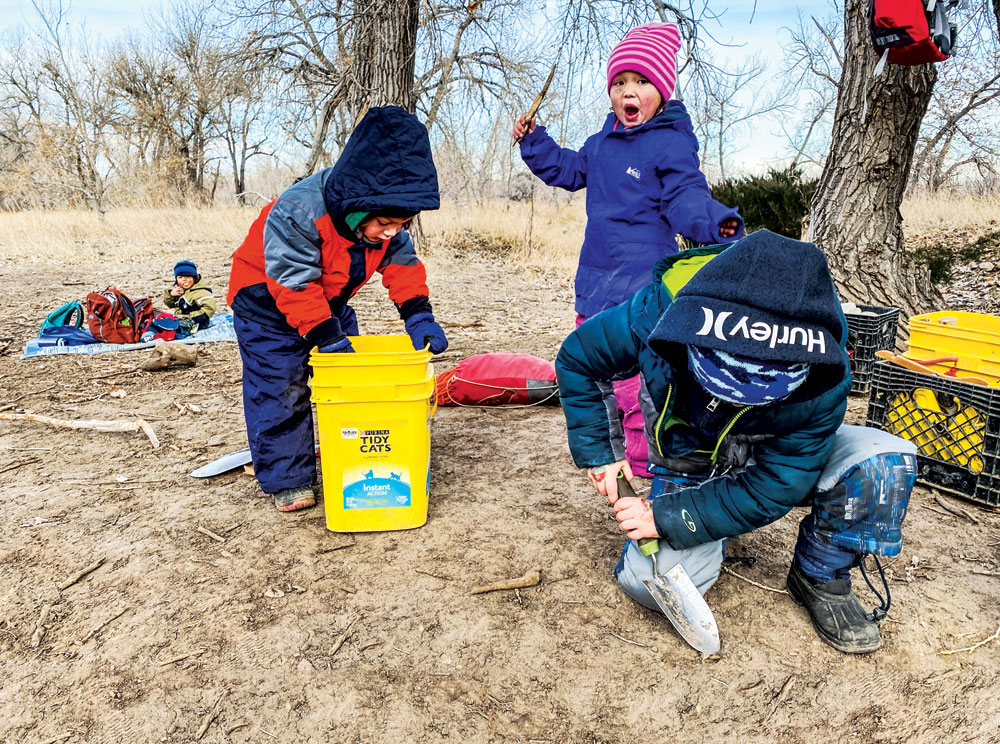
Rocks, sticks and dirt become small houses, bridges and even “monster eggs” in the hands of preschool children at The Nursery School. The all-outdoor program meets at Bluff Lake Nature Center and is based on the European model of “forest schools.”
The temperature is a brisk 23 degrees as bundled-up preschool children tromp down the steps at Bluff Lake Nature Center, eager to start their school day. “Where should we go today?” asks instructor Brett Dabb. “The cicada forest!” yell several children. “The bird blind,” suggest others. Eventually a consensus is reached: today’s class will meet in the cicada forest.
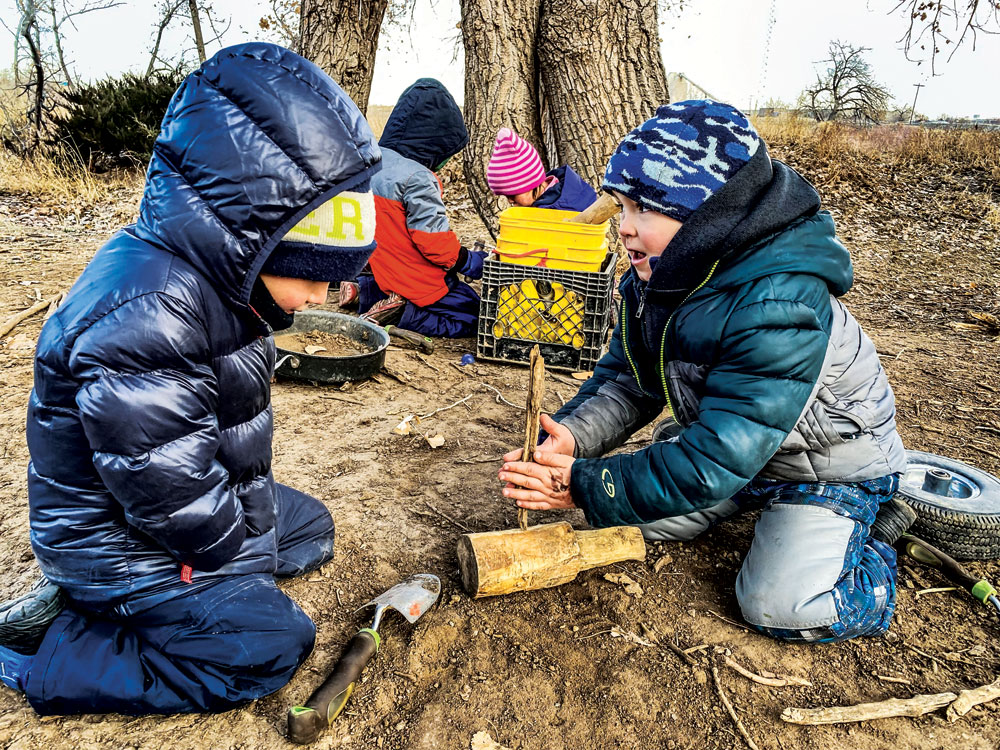
Students at The Nursery School decide what each day’s activities include.
So begins another typical day at The Nursery School, a pre-school founded by Dabb and his grad school friend Matt Hebard 2 1/2 years ago. The half-day program at Bluff Lake is held completely outdoors—there are no enclosed structures, running water or electricity—with the students, ages three to six, deciding what activities to pursue.
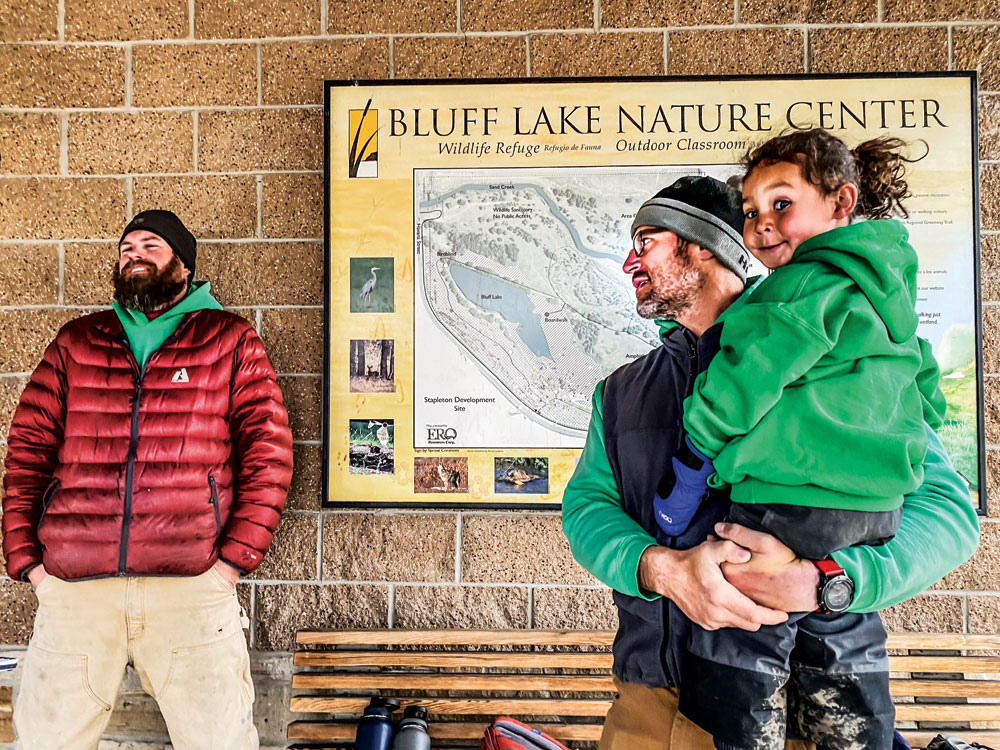
Brett Dabb (left) and Matt Hebard are the founders of “The Nursery School”—a preschool modeled after European forest schools.
Dabb and Hebard have helped run some traditional pre-schools in Denver, but their passion for the outdoors prompted them to investigate the nature-based education philosophy of European forest schools. Since the 1950s, advocates for outdoor learning have started thousands of such forest schools in Europe. Only about 100 exist in the United States. Until recently, there were none in Colorado.
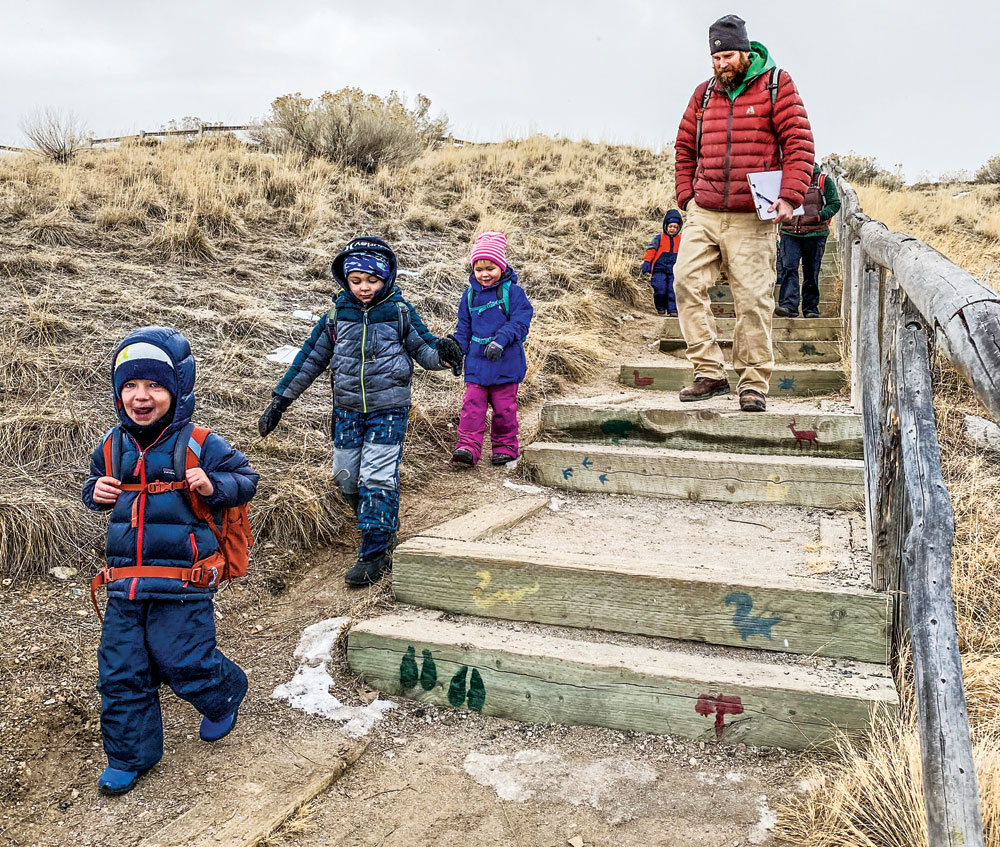
Classes are held entirely outdoors—rain or shine—at the Bluff Lake Nature Center at the east edge of Stapleton.
“The idea behind these schools is that children should learn by playing in nature. Cramming academics doesn’t do any good. The more that children can play outside and create outside, the more it helps build their confidence, their communication and cooperation skills,” says Dabb.
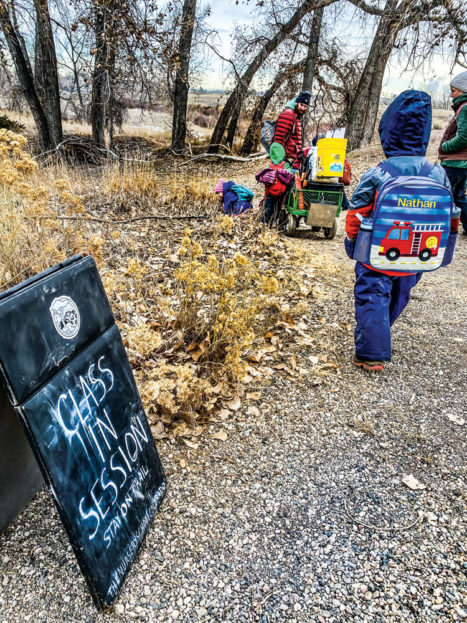
School is only cancelled when DPS is closed or when temperatures dip below 15 degrees.
Park Hill parent Shannon Spezialy agrees. Her 5-year old son Shepard has been attending The Nursery School for 18 months and she says her 2 1/2-year-old will start there in May. “I think he’s really learned to problem-solve and figure things out for himself at school. He’s getting real life experiences that will help him make better decisions in the future.”
Dabb and Hebard, who have master’s degrees in Administrative Leadership with a focus on Early Childhood Education, went to England for forest school training. Then came the tricky part: working with the Colorado Department of Human Services for two years to develop a pilot program to see if forest schools could become licensed by the state.
“The state visited us every couple of weeks to see what the program was like. They saw that kids were happy, safe and very engaged. For us, the pilot was a big success,” says Dabb. “Unfortunately, the state decided it wasn’t comfortable licensing a program that allowed children to use sharp tools and build fires. We think that’s an important part of the forest school experience.”
After consulting with the parents of their students, the two decided to continue operating. Under Colorado law, an individual is allowed to care for up to four children without a license, so The Nursery School is currently capped at eight students with the two instructors.
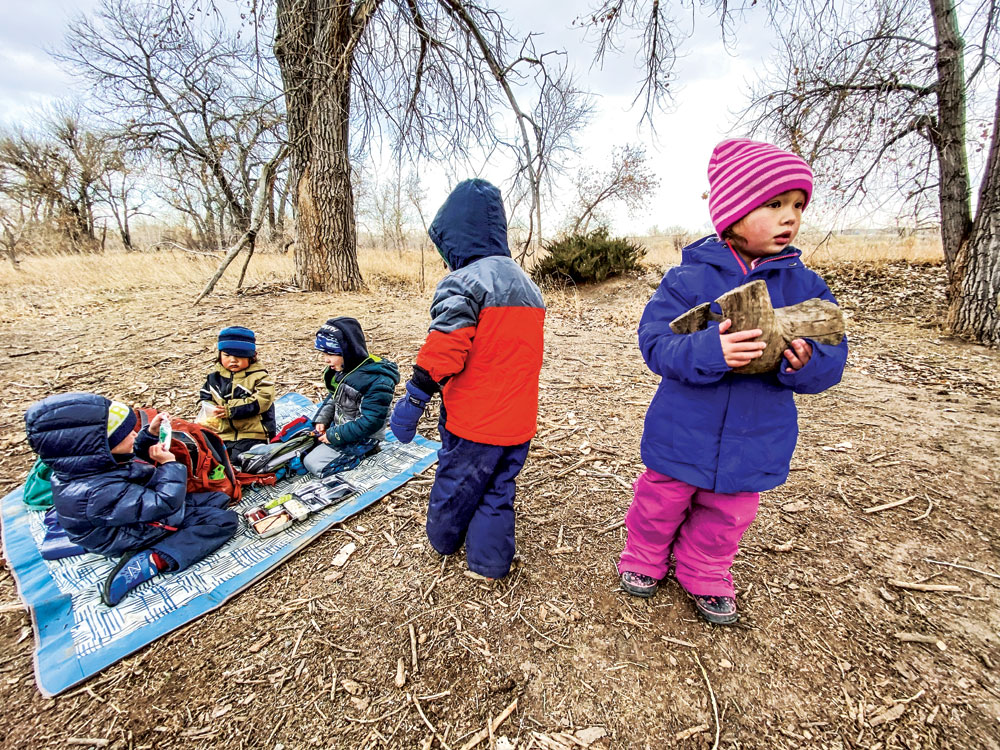
Students at The Nursery School decide what each day’s activities include.
Carin Rosa, director of childcare licensing for the State of Colorado, says she isn’t opposed to the idea of outdoor-based pre-schools and points to a second pilot program that has been operating at City Park for over a year. She says that program has access to an indoor classroom in case of bad weather, something The Nursery School does not.
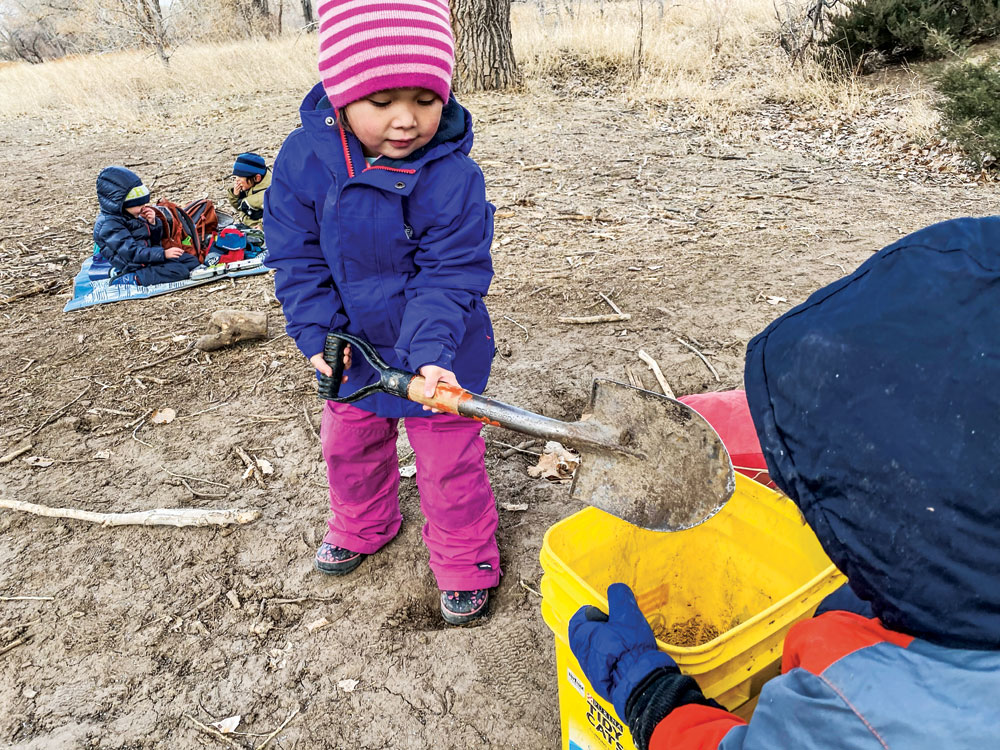
They use tools, ropes, rocks, sticks and their imaginations to build small bridges, teepees, sometimes whole villages.
She acknowledges that forest schools “push the boundaries” for the state licensing process. Still, she’s hopeful to have guidelines written this fall that will license outdoor-based schools that agree to abide by safety regulations and restrictions. “They will have to have a structure for inclement weather and for napping. It’s just not viable otherwise,” says Rosa.
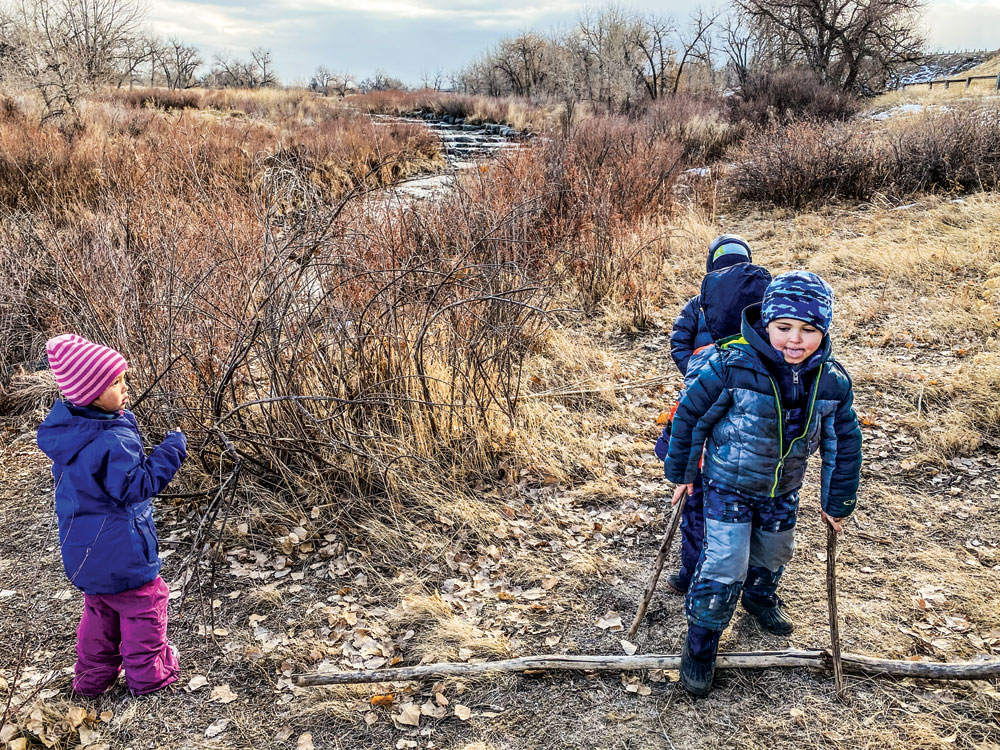
hiking, tree-climbing and fire-building.
As for Dabb and Hebard, they plan to continue operating without a license so they can stay true to the forest school philosophy.
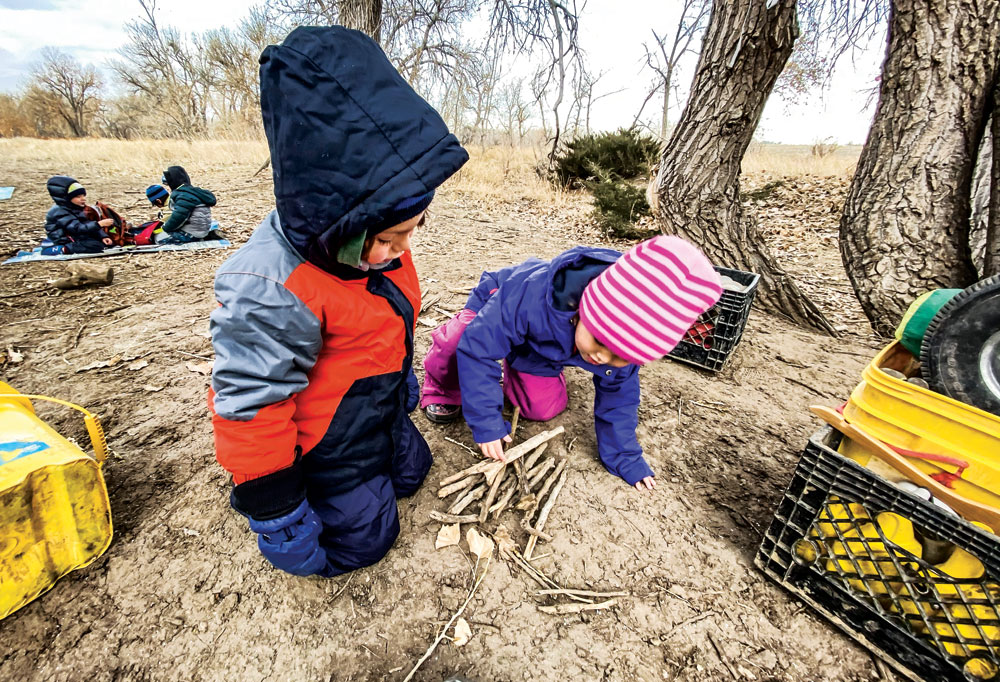
Students learn to problem-solve and work together.
“We understand that the number one priority of the state is keeping children safe. But when you take away all risk, children don’t learn how to move forward in life,” says Hebard. “Our students climb trees, sometimes way over our heads. We’re there to spot them, but we also remind them to use both hands, pay attention to what they’re doing. The kids cheer each other on and it really builds their self-confidence.”


0 Comments